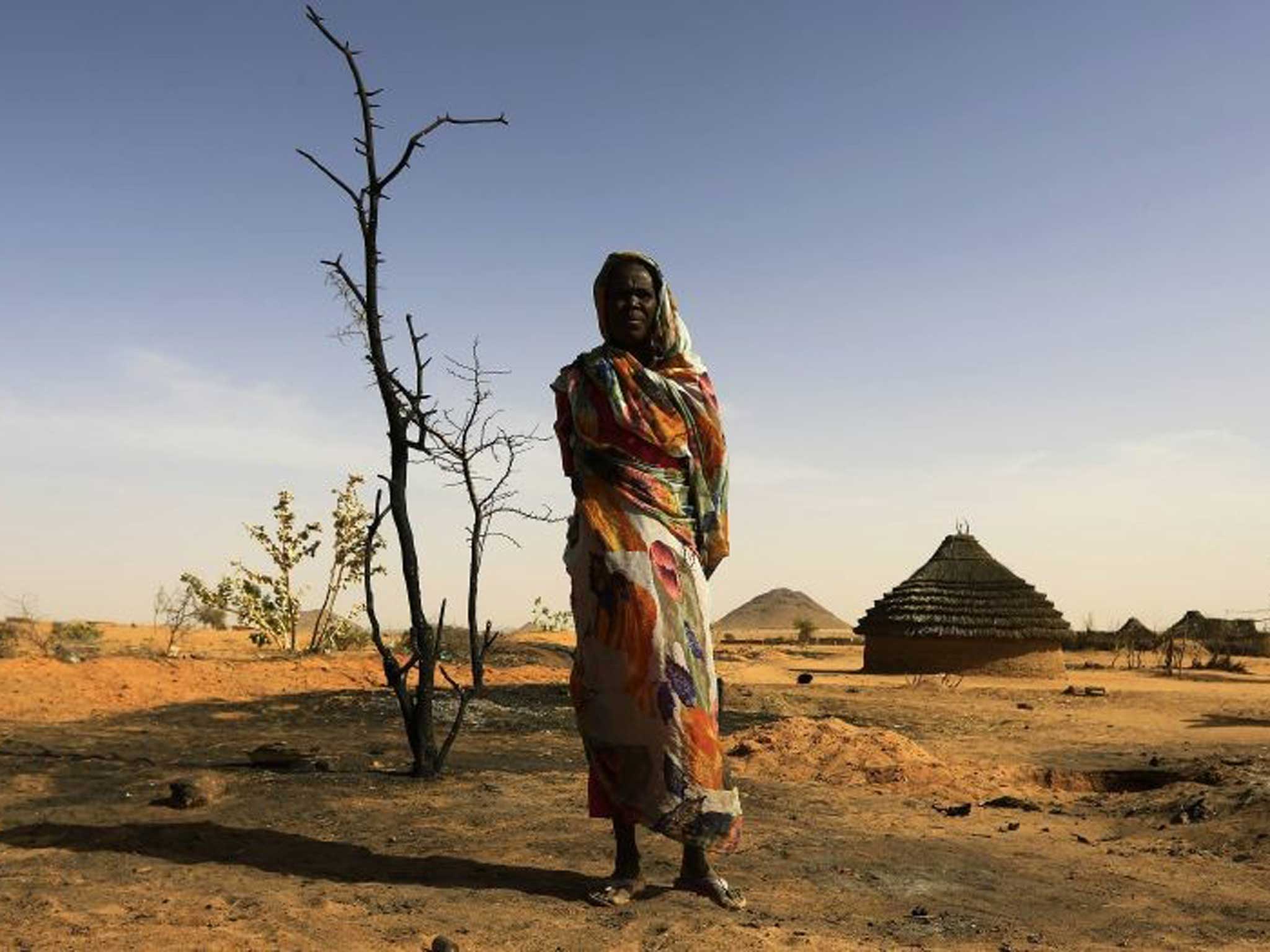20 years after Rwanda, our leaders risk letting it happen again
The world cannot claim to care about atrocities but not provide the means – financial and military – to stop them


Your support helps us to tell the story
From reproductive rights to climate change to Big Tech, The Independent is on the ground when the story is developing. Whether it's investigating the financials of Elon Musk's pro-Trump PAC or producing our latest documentary, 'The A Word', which shines a light on the American women fighting for reproductive rights, we know how important it is to parse out the facts from the messaging.
At such a critical moment in US history, we need reporters on the ground. Your donation allows us to keep sending journalists to speak to both sides of the story.
The Independent is trusted by Americans across the entire political spectrum. And unlike many other quality news outlets, we choose not to lock Americans out of our reporting and analysis with paywalls. We believe quality journalism should be available to everyone, paid for by those who can afford it.
Your support makes all the difference.Yesterday, in the Central African Republic, I met government and community leaders in an effort to help the country to find a path to peace. Tomorrow, in Kigali, I will join the people of Rwanda in commemorating the 20th anniversary of that country’s genocide, the reverberations of which are still being felt across an arc of uncertainty in Africa’s Great Lakes region – and in the collective conscience of the international community.
Each situation has its own dynamics, as does the Syrian conflict, where each day claims hundreds of new victims. But each has posed a complex, life-and-death challenge: what can the international community do when innocent populations are being slaughtered in large numbers and the government is unable or unwilling to protect its people – or is among the very agents of the violence? And what can we do to prevent these atrocities from occurring in the first place?
The genocides in Rwanda and Srebrenica were emblematic failures of the international community. The scale of the brutality in Rwanda still shocks: an average of 10,000 deaths per day, day after day, for three months, with hateful radio broadcasts inflaming and inciting Rwandans to kill Rwandans.
The international community has since made important strides in acting on the lessons of these awful events. We are now united against impunity, epitomised by the establishment of the International Criminal Court. A former head of state has been convicted of war crimes; another is in custody, awaiting his trial. International and UN-assisted tribunals are pursuing accountability and having a discernible deterrent effect on would-be violators of basic international norms.
The international community has endorsed the “responsibility to protect”; states can no longer claim that atrocity crimes are a domestic matter beyond the realm of international concern. Growing numbers of governments and regional organisations are creating mechanisms dedicated to genocide prevention. The United Nations and its partners are more frequently deploying human-rights monitors to trouble spots – “eyes and ears” that show governments and non-state actors alike that the world is watching. And since such crimes rarely erupt but instead take planning and conducive environments, we are targeting the risk factors, from the lack of institutions to grievances left unaddressed.
We are also acting more robustly to protect civilians. New peacekeeping approaches have defeated one of the most brutal militias in the eastern Democratic Republic of the Congo. The United Nations opened the gates of its peacekeeping installations in South Sudan to shelter tens of thousands of people. Similar protection is being offered by the UN/African Union in Darfur. Twenty years ago, such steps would have been unthinkable. Today, this is deliberate policy, an example of our new “Rights Up Front” initiative in action – a lesson of Rwanda made real. These situations remain fragile but the thrust is clear: more protection, not less.
However, this work has faced regular setbacks. The end of the civil war in Sri Lanka in 2009 led to tens of thousands of deaths and a systemic failure by the United Nations to speak up and act. For more than three years in Syria, the international community has remained divided, providing only a fraction of the necessary humanitarian funding while fuelling the fire with arms to both sides in the mistaken belief in a military solution.
The world needs to overcome these moral blind spots. Member states may have rival definitions of national interest, or be unwilling to take on new financial or military commitments. They may be daunted by complexity and risk, or concerned that discussions about an imminent crisis in other countries might one day focus on their own situations. But the results of this indifference and indecisiveness are clear: the bloodshed of innocents and leaders left to utter the words “never again”, again and again – in itself, a sign of continuing failure.
I visited Bangui in the Central African Republic on the eve of the commemoration in Kigali to rally support for the country, which over the past decade has struggled for global awareness of its plight, and over the past year has suffered the collapse of the state, a descent into lawlessness, and gruesome mass killing that has instilled widespread terror and sparked an exodus. People are exploiting religious identity in the fight for political objectives, threatening a long-standing tradition of peaceful coexistence between Muslims and Christians.
I appeal to the international community to provide the military support urgently needed to save lives, get police back on the streets and enable people to return to their communities. The African Union and France have deployed troops, but efforts by the European Union to launch a force have so far come to naught. There is an equally pressing need to start a political process in which reconciliation figures prominently. Any further spread of violence may engulf the wider region.
When the collapse of a country is this profound, the challenge may seem insurmountable. Yet history proves otherwise. The sustained support of the international community has helped Sierra Leone and Timor-Leste to make dramatic transformations and other countries have healed after unspeakable violence.
The Central African Republic can walk the same path. I will continue to stand with its government in charting a course that can build the stable and prosperous country that its resources and traditions can make possible. In Rwanda, I will visit the genocide memorial and pay tribute to the victims – as I have for other tragedies that have challenged the world, from Auschwitz and Cambodia decades ago, to others in our time.
The international community cannot claim to care about atrocity crimes and then shrink from what it actually means to prevent them. Global leaders should do more to prevent the preventable, and to counter the cruelty taking place before our eyes. People everywhere should place themselves in the shoes of the vulnerable, from Syria to the Central African Republic, and ask themselves what more they can do to build a world of human rights and dignity for all. Let us show people facing dire threats that they are not alone or abandoned – and that the lifeline they need is on its way.
Ban Ki-moon is Secretary General of the United Nations
Join our commenting forum
Join thought-provoking conversations, follow other Independent readers and see their replies
Comments